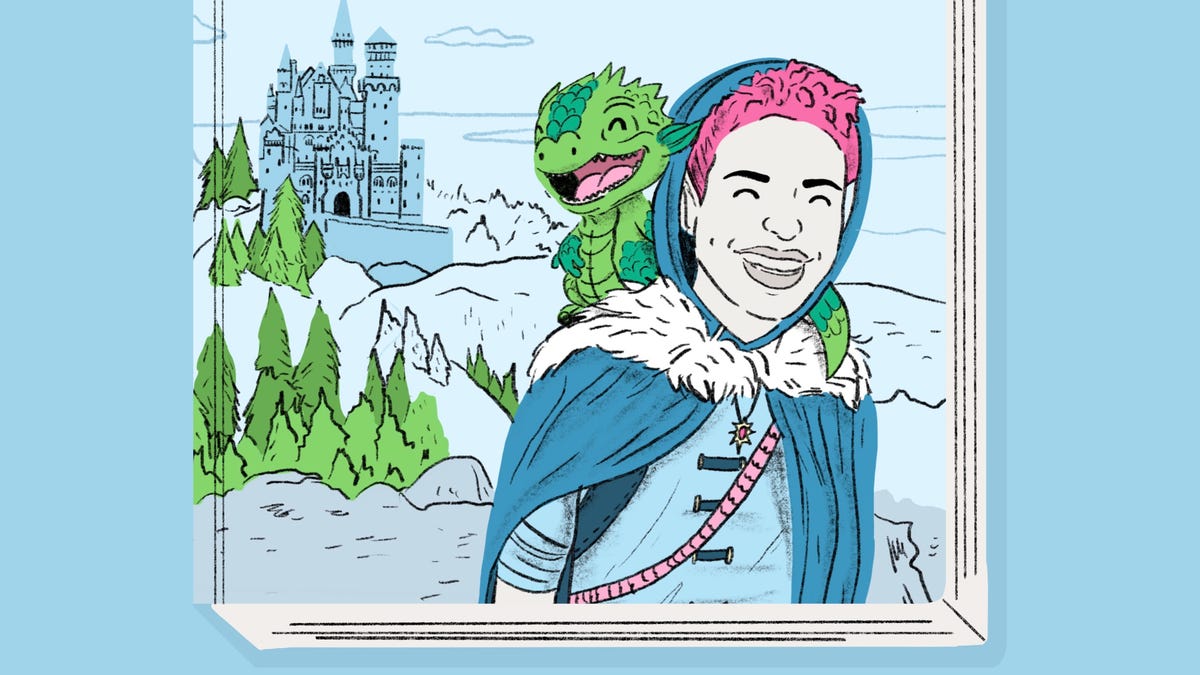How cozy fantasy books became popular by offering suspense with happy conclusions
Though both are penned by the same author and take place in the same universe, there are several notable distinctions between “Lord of the Rings” and its earlier work, “The Hobbit.”
Written 17 years prior to “The Fellowship of the Ring,” “The Hobbit” has a more whimsical tone and a less intense adventure. Instead of trying to save Middle-earth from catastrophic evil, the story follows the hobbits on a journey to reclaim treasure taken by a dragon.
Many readers even consider it an early example of a “cozy fantasy” narrative.
What precisely is cozy fantasy?
Cozy fantasy is a subgenre within the fantasy realm. It encompasses the magic, imaginative settings, and adventurous spirit of conventional fantasy but lacks the perilous stakes. True to its name, this genre embodies the more serene side of fantasy.
“They provide a soft place to land,” explains Meg Hood, better known to her followers as “Meg’s Tea Room” on TikTok. It’s not just a genre; it’s a collective experience and culture. On the cozy fantasy corner of BookTok, you’ll encounter cozy blankets, fantasy outfits, warm drinks, and, naturally, books.
Cozy fantasy is often characterized by what it lacks—dark, perilous quests, mortality, or heart-racing tension—but Hood chooses to focus on what it offers: uplifting day-to-day narratives, detailed world-building, magic, character growth, and the theme of found family. The journey features a joyous spirit, often involving friends you meet along the way (which may include baby dragons or other magical companions).
“Legends & Lattes” by Travis Baldree is a prime example of cozy fantasy — it opened the door to the subgenre for Hood and many others. This story features an orc abandoning her sword to launch the first coffee shop in town. You won’t find intense battles or deaths caused by magic, but there are elements of romance, baked goods, and a delicious cup of coffee.
“It’s an adventure I can see myself partaking in,” remarks Lindsey Hall, one of Baldree’s editors at Tor Publishing, which is part of Macmillan Publishers. “Opening a small business felt more critical than some of the extensive 700-page epic quests we’ve seen in other fantasy works.”
Cozy fantasy revolves around imagining the ordinary in extraordinary ways. This might explain why many narratives feature culinary aspects, such as “A Fellowship of Bakers & Magic” by J. Penner or “Can’t Spell Treason Without Tea” by Rebecca Thorne.
Reasons to dive into cozy fantasy books
Cozy fantasy stories have existed for years—occasionally without being labeled as such—but there has been a noticeable rise in interest during and following the COVID-19 pandemic, according to Erika Tsang, an executive editor at Bramble, a Tor Publishing imprint.
“With societal tensions heightened, many readers sought out comforting tales,” Tsang explains. Cozy fantasies feel like “a warm embrace,” she adds.
This sentiment resonates with Hood, a devoted fan of fantasy literature.
“When I discovered cozy fantasies, I was going through a time where dark, grand tales became overwhelming and created anxiety for me,” Hood shares. “With cozy fantasy, I feel assured of a happy conclusion every time I open the book.”
This predictability is what draws readers to cozy fantasies—there’s an underlying trust between the storyteller and the reader. You don’t have to fret about your beloved character meeting an untimely and harsh end.
Cozy fantasy is also a gentle introduction to the fantasy genre for those unsure of where to begin. Alternatively, if you’re already a fantasy enthusiast, these tales can serve as refreshing intermissions between darker stories.
Top cozy fantasy recommendations
“The Hobbit” exemplifies cozy fantasy criteria—it involves some high stakes while remaining entertaining and appropriate for all ages, Hood notes.
Here are some cozy fantasy books recommended by Hood, Hall, Tsang, and enthusiasts on BookTok:
- “Legends & Lattes” by Travis Baldree
- “The Color of Magic” and the “Discworld” series by Terry Pratchett
- “The Very Secret Society of Irregular Witches” by Sangu Mandanna
- “The Spellshop” by Sarah Beth Durst
- “A Psalm for the Wild-Built” by Becky Chambers
- “Can’t Spell Treason Without Tea” by Rebecca Thorne
- “A Fellowship of Bakers and Magic” by J. Penner
- “Cursed Cocktails” by S.L. Rowland
- “Light from Uncommon Stars” by Ryka Aoki
- “The Tea Dragon Society” by Kay O’Neill
- “Payback’s a Witch” by Lana Harper
- “Dealing With Dragons” by Patricia C. Wrede
- “That Time I Got Drunk and Saved a Demon” by Kimberly Lemming
- “Howl’s Moving Castle” by Diana Wynne Jones
- “Half a Soul” by Olivia Atwater
- “Wildseed Witch” by Marti Dumas

